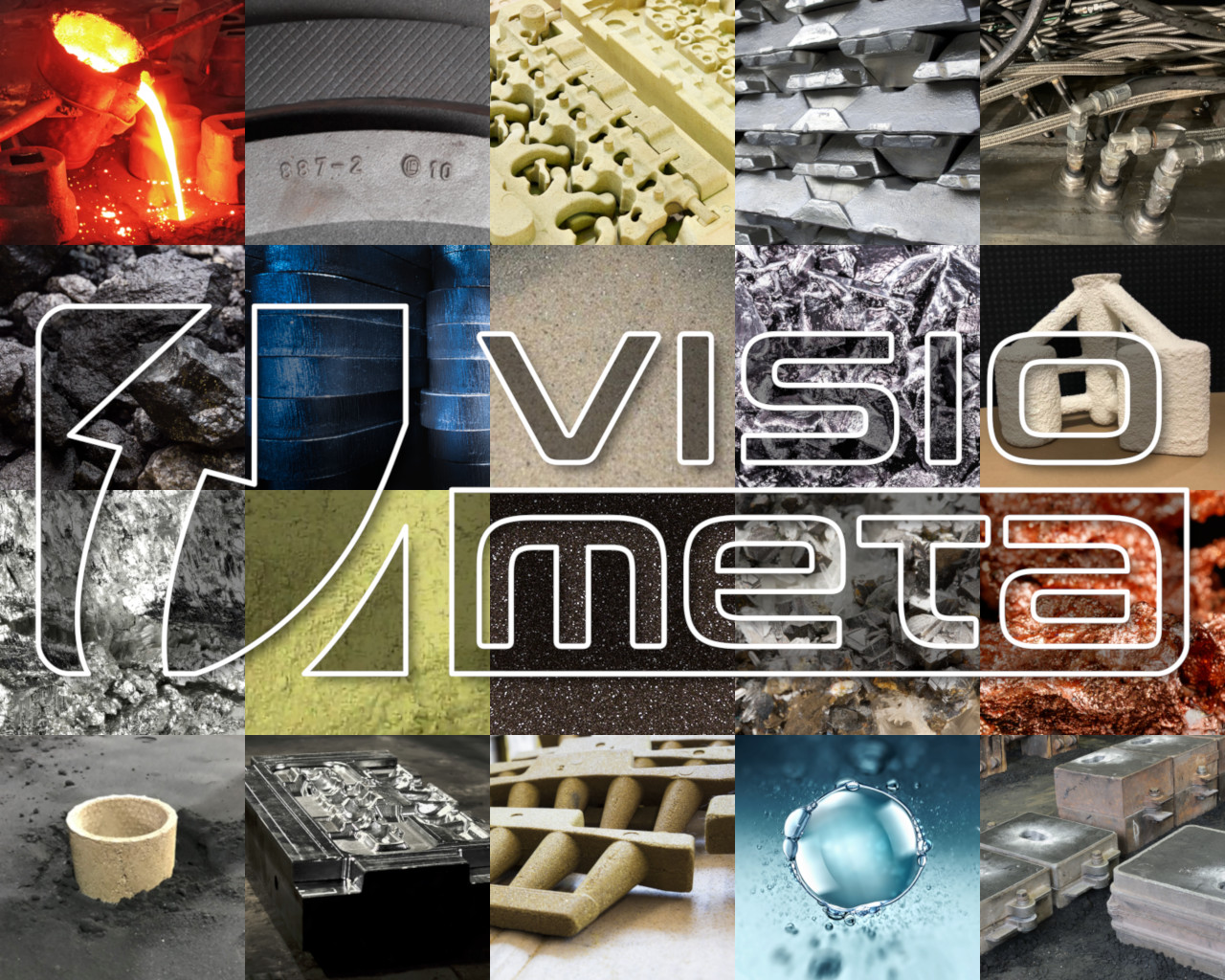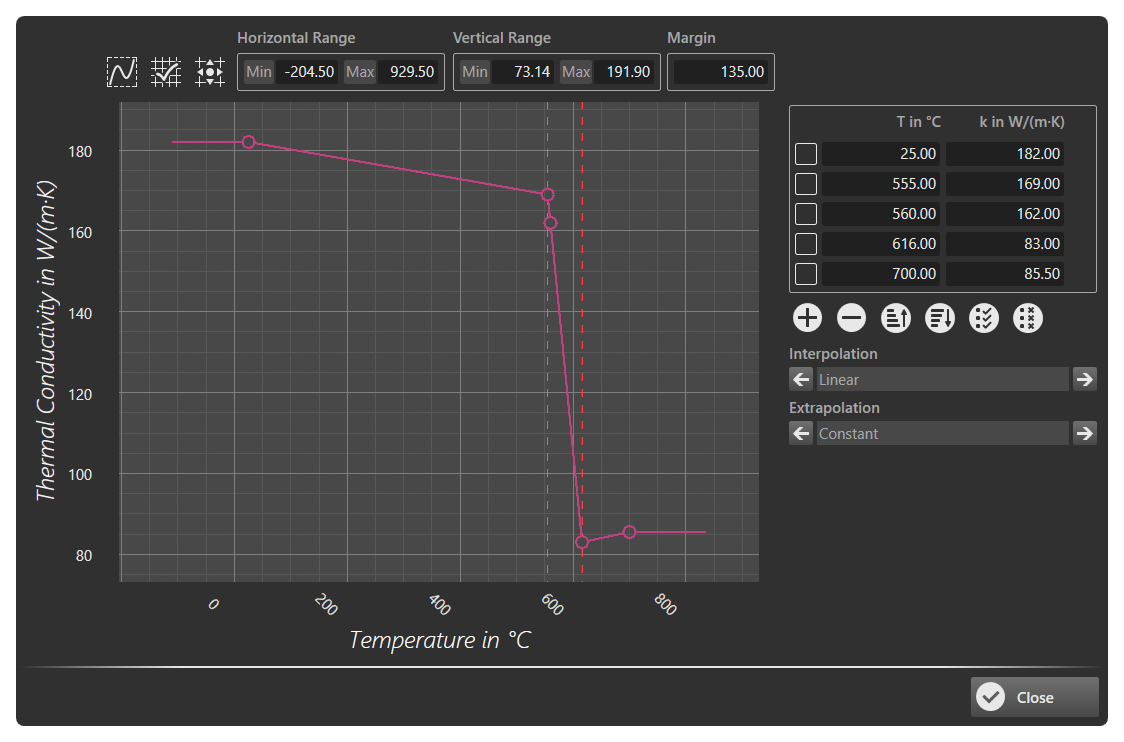Detailed knowledge about the physical properties of casting and molding materials is crucial for precise process planning. This is true not only for simulation, but also for the design of the gating and feeding system and the commercial evaluation of the process. Since many foundries use proprietary material data, some of which obtained through internal research, the Visiometa database is fully extensible and can be customized to meet specific user needs.

First of all, there are several types of materials with regard to technical aspects. Casting materials, for instance, behave differently during the filling and solidification process than, say, molding sands or exothermic feeder caps. This is why they feature a liquidus and solidus temperature which is not relevant for molding materials at the typical process temperatures. The database also allows materials to be organized by chemical composition or other characteristics into separate groups that users can further subdivide and restructure as they wish. For documentation and ease of use, all material records can be labeled, annotated and illustrated.
Physical material properties such as thermal conductivity, density or specific heat capacity are often defined as functions of temperature. Visiometa provides a comprehensive yet easy-to-use editor to reproduce those functions using splines, whose knot values can be entered both in tabular and graphical fashion. Various interpolation and extrapolation techniques make it possible to generate a realistic graph from very few actual measurements.

Visiometa's licensing already includes some standard materials for the most common processes. The list of these data sets is regularly enlarged with great effort in cooperation with universities, research institutes and foundries.